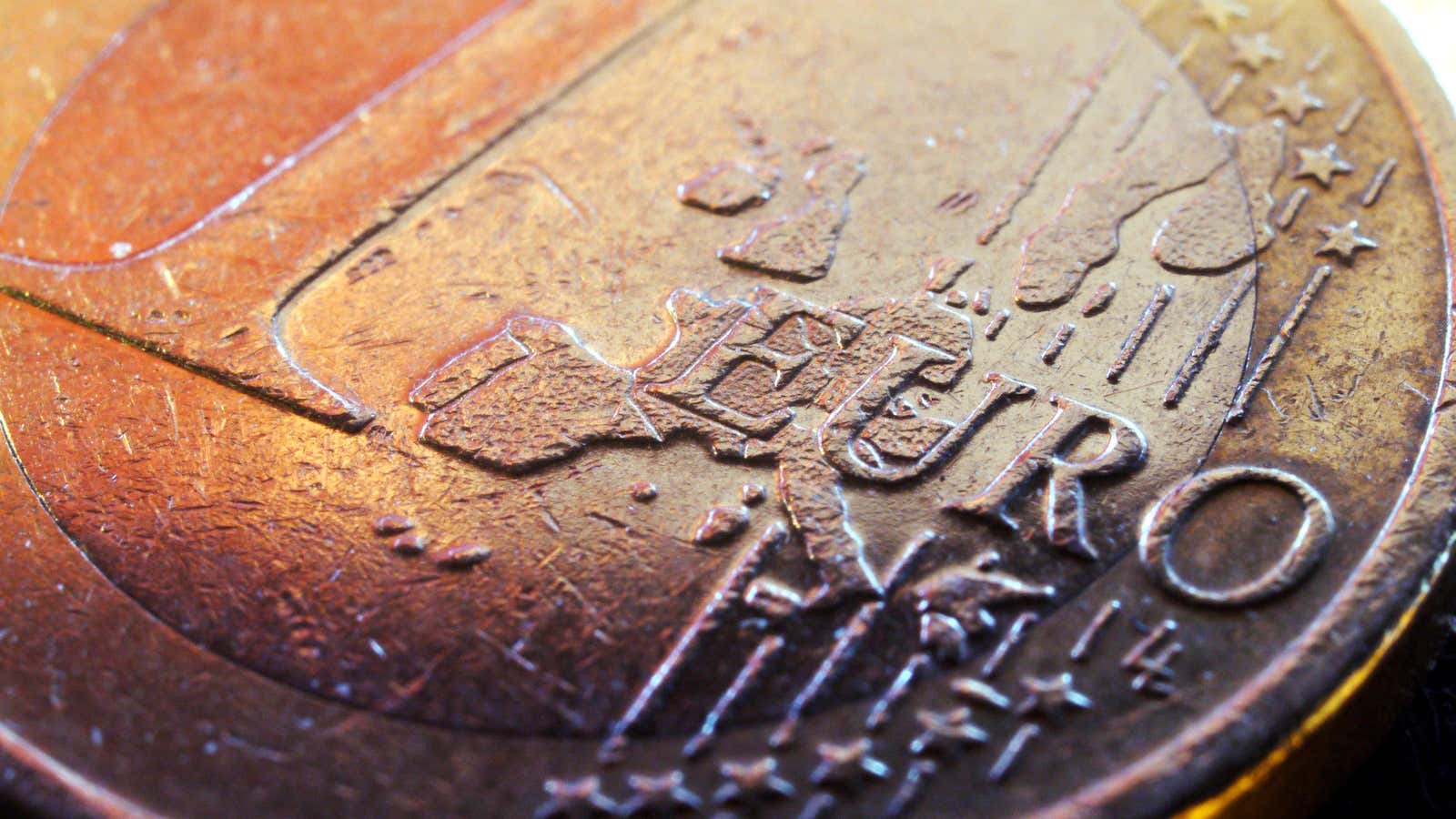When the euro was being created, more than one economist foresaw disaster.
Sure enough, creating a monetary union without a fiscal union led to financial imbalances. At first, hot money flowed to the less-developed peripheral countries, where labor and goods were cheaper. After the euro crisis began, it fled, and now Greece, Italy and Spain can’t adjust to generate new economic growth and pay their debts. Though the Cyprus program is underway, capital controls and all, there is at least another year of European recession ahead, and even Germany is seeing higher than expected unemployment.
So is it time to judge the euro a failure?
“The whole point of whether it’s an optimal currency area is all about whether everyone will want the same monetary policy at the same time,” Joseph Gagnon, an economist at the Peterson Institute of International Economics, says. ”That’s what is not optimal: Greece and Italy need much easier monetary policy, but Germany and Finland do not. That’s the problem.”
From abroad, it’s easy to see what’s going wrong. Absent a cheaper currency or monetary stimulus, the peripheral countries’ economies haven’t grown faster than their debt, so deficit cutting hasn’t helped much. The suffering and unemployment that result can’t go on forever without consequence. Euro-skeptics assume that, sooner or later, a fed-up country will leave the euro. You can find arguments that the citizens of Greece or Cyprus would be far better off returning to their old national currencies. That could put paid to the euro for good, or at least reduce its reach.
So why hasn’t it happened yet? Because the euro is more than just a currency. It’s central to most European politicians’ vision for post-World War II Europe. Many have participated in it their entire professional lives. Big corporations have adapted to the euro in ways that would be tricky to unwind. Even Syriza, Greece’s radical left party, didn’t want to leave the euro; neither do the Cypriot opposition parties.
“Both the right and the left up till now, mainstream parties, have all agreed that ever-closer union is what we all agree on in Europe,” Gagnon says. “You’re asking people to change one of the most deeply rooted things they believed in all their lives.”
That “ever-closer union” was the ambition of the 1958 Treaty of Rome, which established the European common market. And under the pressure of the crisis, the union has indeed gotten closer, even if not quite for the reasons the drafters expected. Ian Bremmer, head of the consultancy Eurasia Group, sees important changes afoot in Europe’s institutions.
“You can no longer say we have currency union without fiscal union,” he says. “You have fiscal rules that are in place that undermine the sovereignty of many of these governments in the periphery that stop them from spending and borrowing in unsustainable ways … I actually think is the euro experiment is successful, the answer remains yes, no matter what Paul Krugman says.”
In short, Europe’s institution builders are now making, in their crisis-driven and piecemeal way, the kinds of changes that might have prevented the financial imbalances that led to the crisis in the first place. But they are in a race against time to replace the ad hoc program of bailouts with a proper banking union and fiscal coordination. And above all they need to convince voters across the continent that continued union will make them all better off. Otherwise, pirate parties and Italian clowns could tear the whole thing apart.
“The anti-democratic trends in places like Italy and Greece and Portugal are only going to grow,” Bremmer warns. “Talk about the gap between haves and have-nots: Germany has the lowest unemployment levels that they’ve had ever had since reunification, the EU as a whole has record levels of high unemployment. That’s not unsustainable in terms of the euro. It may be unsustainable for the European Union.”
